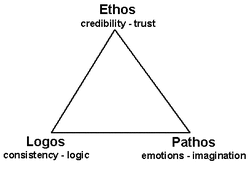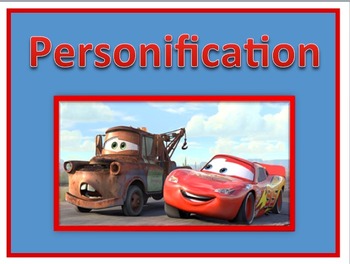parallelism: similar structure in a pair of related words, phrases, or clauses. Also known as parallel structure.
parody: Literary or artistic work that mimics the style of an author for comedy effect or to ridicule.
pathos: element of literature evoking sympathy and sadness within a reader.
pedantry: Obsessive concern over minute and minor details.
personification: Giving human attributes to inanimate objects or animals.
plot: Events that make up the story.
poignant: Technique that evokes a sense of sadness or regret.
point of view: The perspective of the narrator; through whose perspective is the story seen/told.
postmodernism: Genre in which the use of metafiction (or blending of real-life events with fiction), fragmentation (interrupted sequence of events, not always chronological), irony and black humor is heavy.
prose: Everything that's not poetry.
protagonist: The "good" guy in the story; the one the reader is supposed to be rooting for. Typically the main character.
pun: A play of words that suggests double meaning.
purpose: The reason the book/poem/etc is written. Why.
realism: genre that represents the world as it truly is, with no idealization or presentation in an abstract form.
refrain: The "chorus" per se. Lines that are repeated in music or verse.
requiem: Work written for the dead.
resolution: The conclusion of the play/novel/etc. Where all the "loose ends" are tied together and the conflict is resolved.
restatement: Expressing the same idea with different words to emphasize and/or clarify said idea.
rhetoric: The effective use of figures of speech to convince or inform others.
rhetorical question: Figure of speech in which a question is asked to the readers/listeners in order to make a point. An answer is not anticipated.
rising action: The events leading up to the climax; the build up.
romanticism: Genre characterized by a renewed interest in nature, and individual's expression of emotion and imagination.
satire: Use of humor, irony, and/or over-exaggeration to ridicule and criticize topics/behaviors/actions.
scansion: Method of describing poem's rhythm by dividing the lines into feet, pointing out stressed and unstressed syllables, and counting said syllables.
setting: The time, place, and condition that a story takes place in.






No comments :
Post a Comment